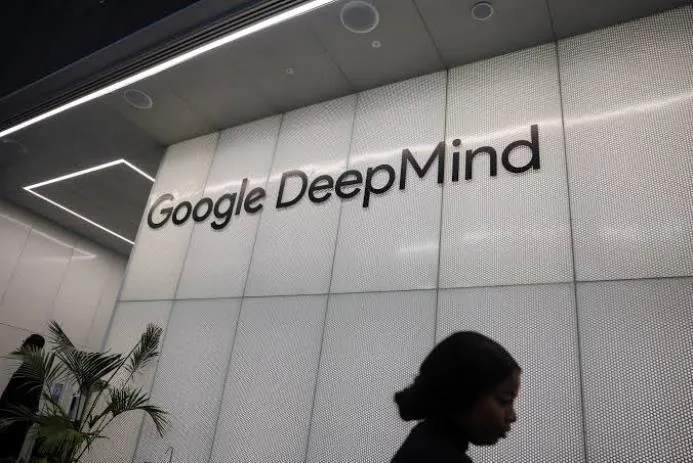 Click to zoom
Click to zoom
A strategic expansion
Google DeepMind has officially opened a new AI research lab in Singapore — and this feels like more than a ribbon cutting. From where I sit, launches like this quietly rewire ecosystems: talent starts to move, universities get new collaborators, and policy conversations that used to be hypothetical suddenly have teeth. It won’t all happen overnight, but expect ripple effects.
What the announcement actually includes
Reporting from Reuters says the lab will focus on collaborative research with governments, academic institutions and private sector partners across education, healthcare and scientific discovery. DeepMind frames the work as research with societal benefit — the same theme you see on DeepMind Research pages.
That description leaves a lot to watch: the formal research agenda, named institutional partners, the first hiring waves and how IP/partnership terms are structured. Those details will tell us if this is a full research centre producing peer‑reviewed work, a coordination hub that runs pilots, or some mixed model. My money: they’ll try a hybrid at first — pragmatic, political, and measurable.
Why Singapore and why now?
Singapore’s pull isn’t mystery: robust digital infrastructure, clear regulatory roadmaps for tech, targeted research funding and unusually tight links between universities and industry. The city‑state has made itself deliberately attractive for multinational R&D spend. If you want to see real job postings and how the market is responding, check Singapore’s jobs portal (MyCareersFuture) — it’s already got AI roles listed that align with what a lab like DeepMind would need.
Timing matters. We’re seeing a broader regionalisation of AI R&D: labs want multilingual datasets, local domain expertise (think tropical healthcare, multilingual education) and real‑world pilots that respect regional norms. To be blunt — the U.S./Europe concentration just isn’t sufficient if you want models that work across ASEAN languages and contexts.
Implications for DeepMind and global competition
- Talent and diversity: Putting researchers on the ground in Asia expands candidate pools and view angles. Multilingual AI research teams are more likely to build localized models that generalise across cultures and that matters when you’re designing tools for Southeast Asia.
- Localized research agendas: With local partnerships, projects like healthcare diagnostics or education tools can move from prototype to validated deployment faster — because the data, clinicians and regulators are nearby.
- Competitive dynamics: Expect other labs (OpenAI, Anthropic, Meta) to hurry regional investments. This isn’t just cooperation — it’s a new kind of arms race, but one spread across cities, not just campuses.
For context on how cloud and AI providers frame responsible AI while scaling research, see Google Cloud’s material on building AI for societal benefit (Google Cloud Blog). That narrative will be tested on the ground in Singapore.
What this means for Singapore and the region
Short term: new roles research scientists, engineers, program managers and deeper collaboration between universities and startups. Medium term: potential spinouts, more venture interest and a stronger case that Asia‑Pacific is a serious research hub.
Still there are real risks. If global labs treat local teams primarily as execution arms (execution shops) rather than leadership nodes, long‑term capability building will stall. Governments and institutions will need to negotiate partnership terms that explicitly include skill transfer, academic co‑authorship and local leadership appointments. Otherwise, this looks like R&D presence but not leadership.
Key indicators to watch next
- The lab’s published research agenda and named partners — that tells you whether they plan peer‑reviewed output or just pilot coordination.
- Hiring patterns: are senior hires relocated or are local leaders appointed? That’s a quick proxy for long‑term commitment.
- Publications, code releases or open datasets — real research labs share outputs; execution centres often don’t.
- Competitive responses: other global AI teams opening Asia‑Pacific hubs will confirm we’re witnessing regionalisation of AI R&D.
Takeaways
- Strategic move: DeepMind Singapore signals that top AI labs see Asia‑Pacific as essential for talent and applied research.
- Opportunities: Local R&D jobs, stronger partnerships and potential AI research spinouts and startups in Singapore.
- Risks: Without deliberate capacity building and fair IP/partnership terms, the region could be relegated to execution rather than leadership.
To be frank: this lab will be a bellwether. If DeepMind publishes robust research, hires local leaders, and strikes partnership deals that include co‑authorship and IP sharing — that’s a real win for Asia‑Pacific. If not, it’s still useful, but mostly a coordination node. Either way, the move underlines a bigger trend: breaking research out of single geographies so teams can solve locally relevant problems. Keep an eye on formal announcements about partnerships and publications — and on whether projects target things like multilingual healthcare AI for ASEAN. That will reveal the lab’s true intent.
For ongoing coverage of AI tools and regional impacts, see FosBite’s analysis and product roundups. Learn more in our guide to Asia‑Pacific AI research hub.
Thanks for reading!
If you found this article helpful, share it with others